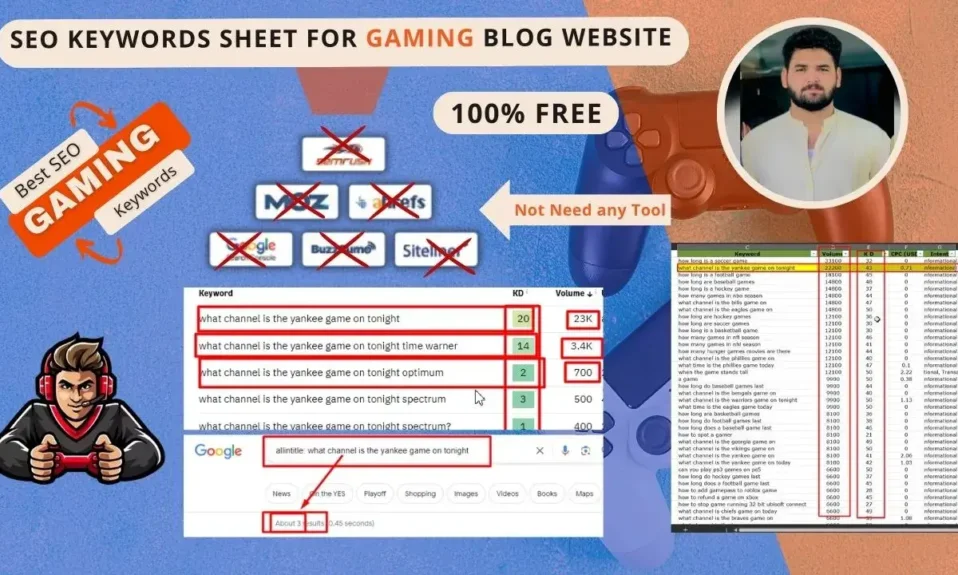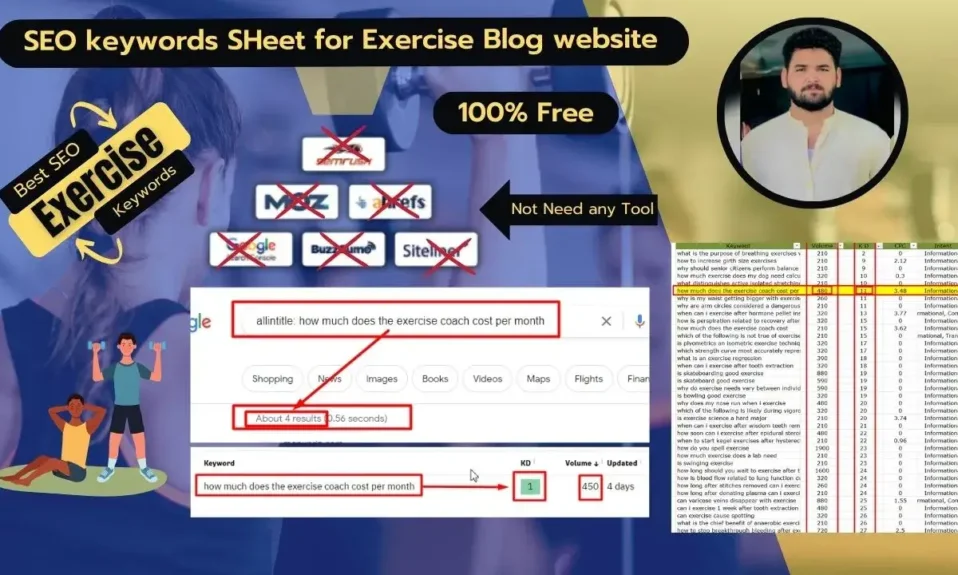
On November 1, 2023, The Verge launched an article titled “The people who ruined the internet,” suggesting a rising notion that “Google isn’t as helpful anymore.”
In response to creator Amanda Chicago Lewis, “a variety of of us are sad, in 2023, with their potential to seek out info on the web, which, for nearly everybody, means the standard of Google Search outcomes.”
Lewis outlines a litany of complaints, portray an unflattering image of the search engine’s outcome pages. She then units off to seek out out who’s accountable for the present state of the web: Google, or SEOs, who she humorously describes because the “individuals who annoy the remainder of us for a dwelling.”
Whereas Lewis finally comes round to acknowledging that SEOs have “so much much less company” than she first thought, the article has despatched waves all through the group.
Slightly than trying to place blame, maybe we are able to look towards the longer term. How can we, as members of a shared digital group, create a greater place to look?
What’s search engine marketing, anyway?
In her article, Lewis presents a definition of “the mysterious artwork of search engine optimization, or SEO,” simplifying it as telling the algorithm “no matter it wants to listen to for a web site to seem as excessive up as attainable in search outcomes,” the place Google then “lures” individuals right into a land of adverts.
Lewis then introduces a stereotypical depiction of search engine marketing practitioners as “content material goblins” or “megalomaniacal jerks,” portraying the business as detached to guidelines, morality, and high quality in pursuit of income.
As Clearscope’s Bernard Huang mentioned in a recent webinar that includes Barry Schwartz, Eli Schwartz, and Lily Ray, “The article was written in this sort of cynical, skeptical gentle of like oh all these practitioners are all gaming the system.”
However as he makes a degree so as to add, “in a variety of methods, that’s what occurs when there’s a system within the first place.”
Google as a system
Whereas Google is by far (and for good cause) the search engine market chief, most within the business would additionally agree they’re less-than-perfect in finishing up their very own mission and goal.
As Lewis argues, regardless of Google’s mission to “set up the world’s info” and make it simpler to entry and use, it’s not possible to “design a free, automated system to assist individuals discover info with out some individuals making an attempt to sport that system.”
As a enterprise entity, Google has additionally confronted scrutiny for implementing modifications aimed toward boosting advert income, with critics questioning the impression of those methods on the general consumer expertise.
Consequently, SEOs have lengthy grappled with a way of restricted management over what has been criticized as Google’s dominance and biased algorithms. Who decides what’s reliable? What’s worthy of authority?
However as Lily Ray factors out, Google has made nice efforts to enhance its transparency, and “it’s as much as SEOs whether or not or not they wish to take Google’s recommendation critically.”
For some, this dynamic could have turned search engine marketing right into a sport towards the machine, however Lewis’ perspective appears to give attention to practices that primarily characterised the early days of the business, a time when the web was much less mature.
Because the web grows in sophistication, shoppers spend extra time on Google and different platforms. Their behaviors and preferences have advanced. A extra refined and sophisticated web requires each a extra refined system of organizing its info and a greater approach of speaking with that system.
Web as group
Lewis’ definition additionally fails to seize the nuanced and moral approaches of many professionals within the subject who function as people-first companions in a digital group.
Within the article, she rhetorically asks, “Why does it at all times appear to shock me, even in spite of everything these years, that the best way we behave on the web is commonly fairly totally different from how we act in actual life?”
However as most SEOs would doubtless agree, good search engine marketing work — most of the time — results in large-scale content material consolidation that really reduces the noise on numerous domains, working to wash up the web as a complete.
In a extra holistic view, SEOs might be likened to librarians, aiming to prepare and facilitate entry to info throughout the huge digital panorama. Whereas Google, on this analogy, acts because the digital library, it’s essentially totally different in actuality.
Whereas the web aimed to seize, as Lewis calls it, the ‘spirit of the general public library’ at first, replicating the bodily expertise and community-driven processes of libraries stays a problem on-line.
search engine marketing, then, turns into a method of navigating, speaking, and dealing with search engine algorithms which might be largely out of our management, just like adhering to a language model information. The most effective practitioners prioritize moral, audience-first practices that join customers with the knowledge they search.
Advertising VP Chris Lengthy echoes these sentiments in his own response to the article, stating, ”I’ve had far more conversations with individuals speaking about content material that’s greatest for the consumer, UX and making an attempt to serve the absolute best reply.” He goes on to commend Lily Ray, Barry Schwartz, and others, referring to them as “the nice stewards of our group.”
All digital content material professionals ought to proceed to align themselves with people — as most have at all times strived to do — and reinvigorate a collective dedication to creating the web a greater place to be.
A story of two industries
Search engine marketing spans textual content and technical web page components. This implies anybody who writes or creates content material for an internet site is arguably, on some degree, additionally an search engine marketing — whether or not they prefer it or not. This includes journalists.
Let’s take a more in-depth have a look at The Verge article itself.
On the finish of her subhead, Lewis hypothesizes a post-Google world, posing a charged and accusatory query: “what occurs to the cottage business of SEO consultants who struck content material oil and smeared it all around the internet?”
Lewis’ headline and its accompanying subhead arguably — and not-so-subtly — err on the facet of clickbait, a “traditional” observe Lewis associates with SEOs and their perceived “ruining” of the web.
As Chris Lengthy highlighted, “In fact, there’s a little bit of irony that the article factors out how search engine marketing is a profit-gaining enterprise that dampens the digital expertise after which proceeds to make use of click-bait pushed headlines, optimized titles for Prime Tales and in-article adverts.”
In each industries — search engine marketing and journalism — clickbait is mostly seen as a destructive, manipulative observe as a result of it could mislead, waste customers’ time, and erode belief.
It’s an expertise that echoes shoppers’ evolving perceptions across the intrusiveness of promoting, a big a part of the criticism surrounding Google’s search outcomes.
And this was doubtless a part of the play — a satirical transfer to carry up a mirror to the business the creator is critiquing. “Perhaps I might even repackage such a tragedy right into a sensationalized anecdote for a viral article in regards to the individuals who do search engine marketing for a dwelling,” Lewis writes, winking at us along with her phrases.
The fact is, search engine marketing and journalism each play important roles in offering beneficial, correct, and reliable info to the general public. Whereas there are destructive practices and impacts related to these industries, most professionals in each fields are — or ought to be — dedicated to moral and accountable content material creation.
So, what does this seem like in observe? What’s going to — or ought to — occur to SEOs and the business at massive? How will we, as Lewis playfully places it, “preserve the social gathering going?” And who’s invited?
A name for evolution
The article portrays the thought of creating a greater web as an idealistic notion. However so long as the business stays dedicated to enhancing entry to info and value, with a steadfast give attention to the individuals searching for that info, search engine marketing will at all times serve a goal. It simply may not at all times look the identical or go by the identical identify.
search engine marketing practitioners, journalists, entrepreneurs, and different digital content material professionals shouldn’t be afraid to stay essential of Google, or any system we function inside—or to acknowledge our collective impression. We additionally shouldn’t be afraid of a world with out Google as we all know it right this moment.
Equating the web with Google limits our potential to be extra holistic in our perspective in the case of serving searchers, and to think about different approaches to search engine marketing.
The digital panorama is dynamic and various, with customers exploring numerous channels and platforms to seek out info. Google is one channel amongst a wide range of locations the place customers are looking for solutions.
And regardless of their quality rater guidelines, algorithm updates, and newer transparency efforts, satisfying the various wants and preferences of right this moment’s customers stays a problem.
Being authentically audience-first
Lewis’ cynical speculation—that search engine marketing “appears to have efficiently destroyed the phantasm that the web was ever about something apart from promoting stuff”—arguably reveals extra in regards to the altering wants and preferences of right this moment’s info seekers than it does about any particular search engine.
The web doesn’t should function a one-stop store for transactions.
As Lewis quotes from The New Yorker, individuals understand a lot of the content material they see as superficial because it’s steadily formed by the foundations of a particular channel, or underhandedly transactional. Everyone seems to be over being interrupted and bought to, particularly after we’re not even trying to purchase or interact in any respect.
In right this moment’s AI and empowered consumer era, the main target should shift from disruptive, undesirable practices to creating genuine content material that genuinely helps people, connecting them with no matter they want—nothing extra, nothing much less.
Content material practitioners of all types ought to search to be audience-first, at all times.
Redefining search engine marketing
As Terakeet advanced from primarily working with challenger manufacturers to growing enterprise search engine marketing applications, our content material, UX, and tech groups would constantly come collectively to collaborate on user-centric approaches whereas aiming to attenuate compromises made for the sake of search engine visibility.
Throughout this transformation, it was clear that the ‘when you construct it, they may come’ principle didn’t maintain, significantly for market disruptors. And as we transfer deeper into an AI-generated on-line world, the significance of human-centric, value-driven content material turns into much more urgent.
As a result of what’s authoritative, what constitutes “good” or “beneficial” or “reliable” info, is extremely subjective — and may actually solely be decided by the individual searching for it, not an algorithm. Magnificence is, in spite of everything, within the eye of the beholder.
Connecting with OAO
Our method to enterprise search engine marketing advanced in a approach that constantly harmonized and consolidated disparate content material efforts. This led not solely to efficiency outcomes however, most significantly, to optimistic viewers outcomes.
By way of reflection and a deeper understanding of our shifting panorama, Terakeet determined to maneuver past search engine marketing. We might now not ignore the instinct to innovate past an algorithm-focused technique. Right this moment, we name our method owned asset optimization, or OAO.
The place conventional search engine marketing focuses on enhancing visibility in search, OAO takes an owned asset-first method to optimizing content material, utilizing channels primarily as sources for shopper intent insights. Right here, channels inform as a substitute of drive.
OAO asks us to shift away from chasing algorithms — which invite gamification — and construct essentially the most genuine, useful expertise throughout a curated community of consumer-driven content material. So, irrespective of the place we search, we’re taken care of.
OAO could not sound that totally different, however by shifting away from fixating on any given algorithm, we free ourselves to give attention to what we management. This empowers us to craft essentially the most sturdy and impactful experiences for our viewers.
OAO 101
The Intro E mail Course
A extra useful web
Irrespective of our position — consumer, search engine marketing, journalist, model, no matter — we must always function as companions in constructing a extra useful, people-driven web. “As a result of,” as Lewis writes, “I, too, use Google. I, too, need dependable and related issues to return up once I look via this huge compendium of human data.”
If we agree that, past platform guidelines, actively listening to customers is essential — and if we acknowledge that we’re important members of the broader digital group and act accordingly — we are able to all play a component in making the web world a greater place to look.
#Constructing #Web #search engine marketing












